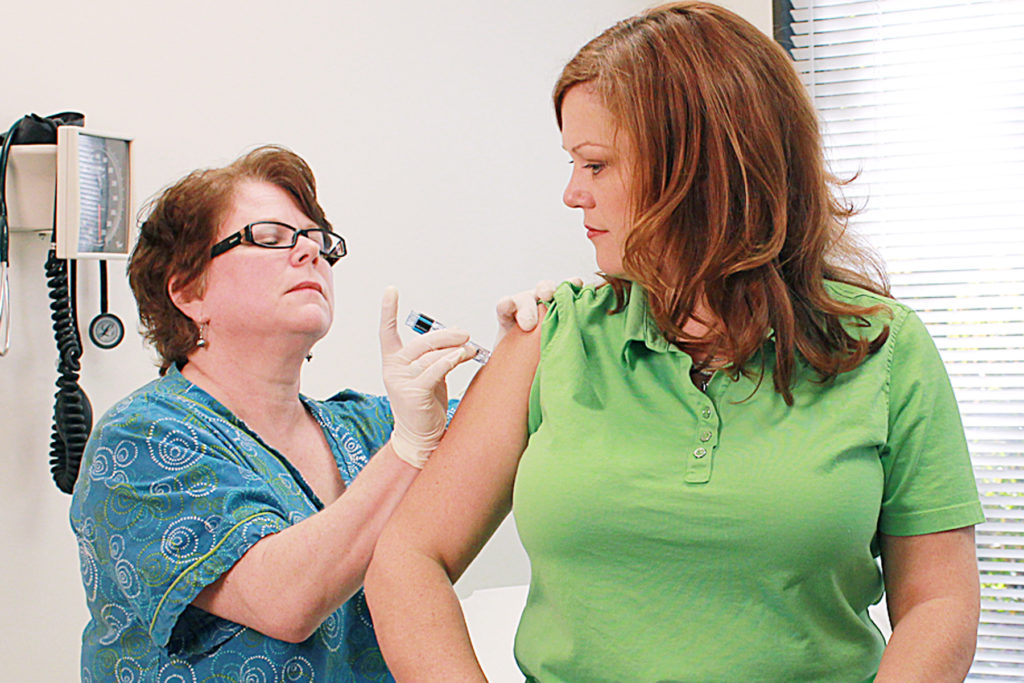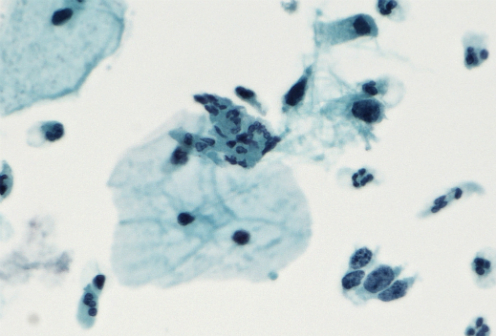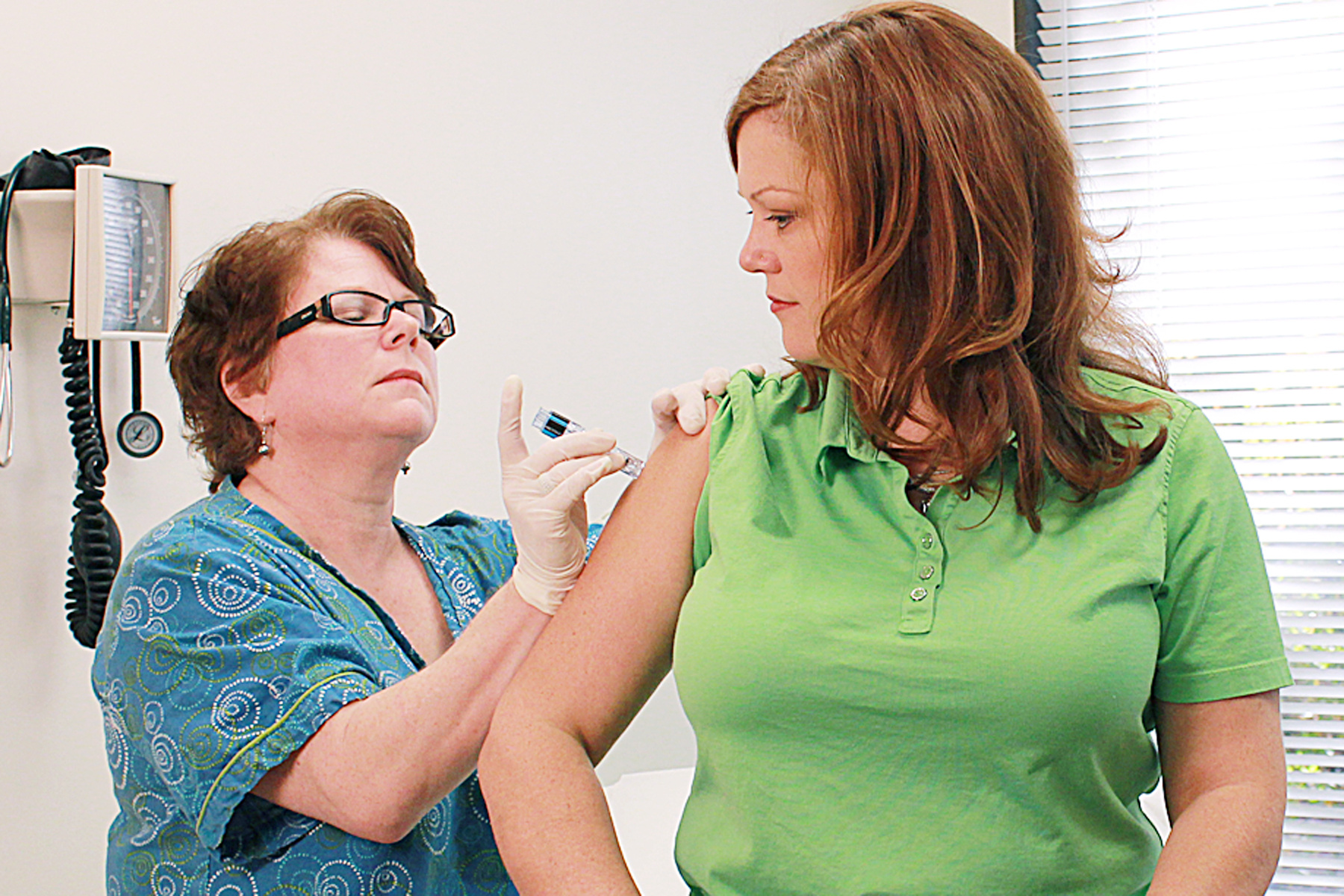August is National Immunization Awareness Month, and while vaccines may be controversial to some, the American Lung Association is hoping to convey the benefits of vaccination, particularly for people living with lung disease. While vaccine-preventable infectious diseases kill up to 50,000 US adults every year, the Centers for Disease Control and Prevention (CDC) report that vaccination programs have made a measurable difference in the number of individuals who contract and die from these pathogens.
For instance, in 1996, there were 508 recorded cases of measles in the US and one death as a result of the disease. Twenty years later in 2016, just 85 cases were identified.
Because of their ability to seriously affect the health of those suffering from lung disease, the American Lung Association is focusing their efforts this year on promoting immunization programs again pneumococcal pneumonia and influenza. They’re urging eligible individuals in the US to check to make sure they’ve received these recommended vaccines, and to talk to their healthcare provider if they think they might not be up to date.
“Older adults and those with weakened immune systems or certain chronic health conditions – like asthma or chronic obstructive pulmonary disease (COPD) – are especially vulnerable to infectious disease,” said Dr. Albert Rizzo, Senior Medical Advisor to the American Lung Association. “In fact, for adults 65 and older living with COPD, the risk for contracting pneumococcal pneumonia is 7.7 times higher than their healthy counterparts, and those with asthma are at 5.9 times greater risk.”
Coughing is the primary mode of transmission for pneumococcal pneumonia, and symptoms of the lung infection – which include high fever, shortness of breath and chest pain – can develop rapidly. Individuals over the age of 65 are recommended to receive the pneumococcal vaccine, according to the CDC’s Advisory Committee.
The flu might be a more familiar infectious disease to most, but it’s a dangerous infection for immunocompromised patients and those whose lung capacity is already reduced due to a chronic condition. It’s also spread through coughing and sneezing, however the CDC recommends that everyone over the age of six months get the flu vaccine each year to protect themselves and others against the dominant influenza strains of the season.
In addition to the American Lung Association, Pfizer is also promoting awareness of these respiratory infectious diseases during National Immunization Awareness Month. The American pharmaceutical company has a special focus on pneumococcal disease and manufactures the PCV13 pneumococcal conjugate vaccine which protects against 13 types of the bacteria.












Join or login to leave a comment
JOIN LOGIN